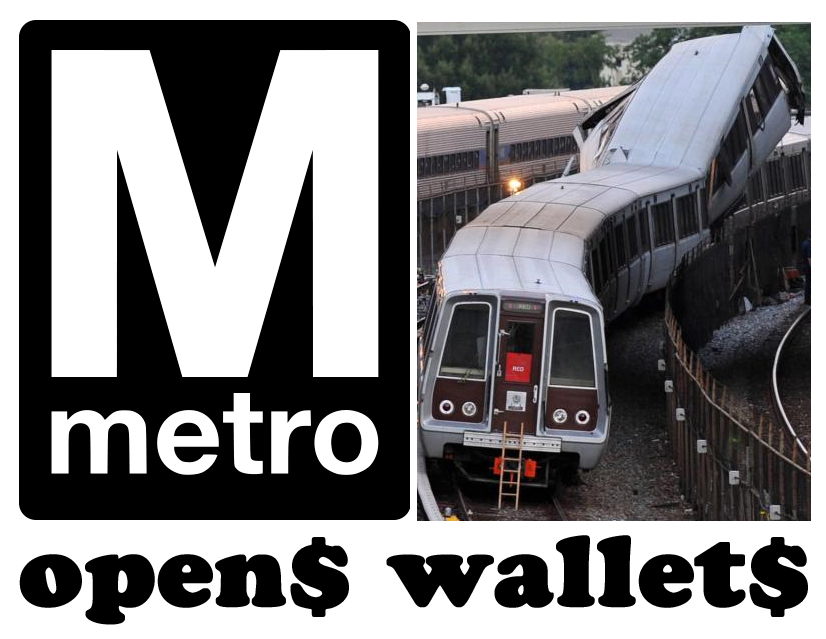
|
||
| FLATLINE | ||
Another Year of Accidents, Death as Metro Marks Third Anniversary of Crash
|
(Washington, DC) — Metro (the Washington Metropolitan Area Transit Authority, or WMATA) marked another anniversary for the deadliest incident in its 36-year history. While some meditated on the events of that day, others quietly asked when it would be their time to suffer at the hands of Metro incompetence. On June 22, 2009, two 1000-series trains, manufactured by Kawasaki Rail Car, Inc., collided, murdering eight civilians and one Metro employee. The 1000-series trains had been rated "uncrashworthy" by the National Transportation Safety Board but were not taken out of service; they still ride the rails three years after the accident. In addition, over the past three years, riders have faced multiple fare increases, service cuts, additional train malfunctions and delays due to accidents involving Metro employees and incidents involving the public:
"We mark this day, thinking of those who were affected by the tragedy three years ago, but also to reaffirm that Metro is still going strong," said a Metro spokesman, speaking on condition of anonymity. "As long as there are people willing to risk their lives by working for Metro and patronizing Metro, the dream of mostly-safe, overpriced mass transit will not die -- unlike some of our customers and employees!" |
 |
Another Year of Accidents, Death as Metro Marks Third Anniversary of Crash. FLATLINE 2012 May-Jun;14(5-6):e6.




